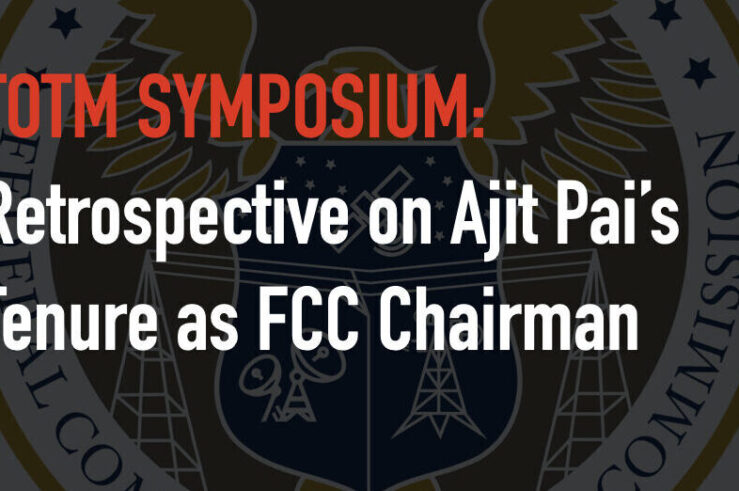Showing results for: “digital markets act”
FTC Returns to Section 18 Rulemaking with Impersonation Fraud Hearing
The Federal Trade Commission (FTC) last week held its first informal hearing in 20 years on Section 18 rulemaking. The hearing itself had a technical delay, which to us participants felt like another 20 years, but was a mere two hours or so. At issue is a proposed rule intended to target impersonation fraud. Impersonation fraudsters hold themselves out ... FTC Returns to Section 18 Rulemaking with Impersonation Fraud Hearing
Creditor derivative suits in Delaware LLCs
The ever-helpful Francis Pileggi thoroughly discusses an interesting and important recent Delaware opinion by VC Laster, CML V, LLC v. Bax, C.A. No. 5373-VCL (Del.Ch. Nov. 3, 2010) which holds a creditor lacks standing under the Delaware LLC act to sue an insolvent LLC derivatively. The following builds on Mr. Pileggi’s excellent analysis. The court interpreted ... Creditor derivative suits in Delaware LLCs
Boom, bust, and collusion: Does it really matter?
A recent working paper by Hashmat Khan and Matthew Strathearn attempts to empirically link anticompetitive collusion to the boom and bust cycles of the economy. The level of collusion is higher during a boom relative to a recession as collusion occurs more frequently when demand is increasing (entering into a collusive arrangement is more profitable ... Boom, bust, and collusion: Does it really matter?
Merger Lore: Dispelling the Myth of the Maverick
There’s always a reason to block a merger: If a firm is too big, it will be because it is “a merger for monopoly”; If the firms aren’t that big, it will be for “coordinated effects”; If a firm is small, then it will be because it will “eliminate a maverick”. It’s a version of ... Merger Lore: Dispelling the Myth of the Maverick
Health Care Reform, Reconciliation, and the Role of the Senate: Some Wise Counsel from Key Democrats
Well, it looks like Congress is going to attempt to enact the Senate’s health care bill using the reconciliation process. President Obama certainly suggested as much in Thursday’s Health Care Summit, downplaying the significance of such a move and suggesting it may be necessary in order to “move forward.” First, he said to Senator McCain: ... Health Care Reform, Reconciliation, and the Role of the Senate: Some Wise Counsel from Key Democrats
When Should the Government Provide Public Goods?
My new book, How to Regulate: A Guide for Policymakers, will be published in a few weeks. A while back, I promised a series of posts on the book’s key chapters. I posted an overview of the book and a description of the book’s chapter on externalities. I then got busy on another writing project ... When Should the Government Provide Public Goods?
A Reflection on Commissioner Pai, Chairman Pai, and Public Service
Much of this symposium celebrates Ajit’s contributions as chairman of the Federal Communications Commission and his accomplishments and leadership in that role. And rightly so. But Commissioner Pai, not just Chairman Pai, should also be recognized. I first met Ajit when we were both minority commissioners at our respective agencies: the FCC and Federal Trade ... A Reflection on Commissioner Pai, Chairman Pai, and Public Service
To Close the Digital Divide, Broadband Infrastructure Funds Must Be Spent Efficiently
States seeking broadband-deployment grants under the federal Broadband Equity, Access, and Deployment (BEAD) program created by last year’s infrastructure bill now have some guidance as to what will be required of them, with the National Telecommunications and Information Administration (NTIA) issuing details last week in a new notice of funding opportunity (NOFO). All things considered, ... To Close the Digital Divide, Broadband Infrastructure Funds Must Be Spent Efficiently
Evans and Schmalensee Webinar on Two-Sided Markets
Here is a link to the latest Competition Policy International Webinar series on antitrust issues in two-sided markets by David Evans and Richard Schmalansee. Here is the course description: It is now widely recognized by antitrust and economic scholars that analyzing competitive practices such as mergers and abuse of dominance in two-sided industries requires special ... Evans and Schmalensee Webinar on Two-Sided Markets
FTC Rejects Economics for ‘Fairness’
The current Federal Trade Commission (FTC) appears to have one overarching goal: find more ways to sue companies. The three Democratic commissioners (with the one Republican dissenting) issued a new policy statement earlier today that brings long-abandoned powers back into the FTC’s toolkit. Under Chair Lina Khan’s leadership, the FTC wants to bring challenges against ... FTC Rejects Economics for ‘Fairness’
A Policy Statement Is Still Only Worth the Electrons Upon Which It Is Written
Just over a decade ago, in a speech at the spring meeting of the American Bar Association’s Antitrust Law Section, then-recently appointed Commissioner Joshua Wright of the Federal Trade Commission (FTC) announced his hope that the FTC would adopt a policy statement on the use of its unfair methods of competition (UMC) authority: [The Commission] ... A Policy Statement Is Still Only Worth the Electrons Upon Which It Is Written
The Bitter Fruits of Federal Antitrust ‘Reform’ Legislation
Much ink has been spilled regarding the potential harm to the economy and to the rule of law that could stem from enactment of the primary federal antitrust legislative proposal, the American Innovation and Choice Online Act (AICOA) (see here). AICOA proponents, of course, would beg to differ, emphasizing the purported procompetitive benefits of limiting ... The Bitter Fruits of Federal Antitrust ‘Reform’ Legislation










